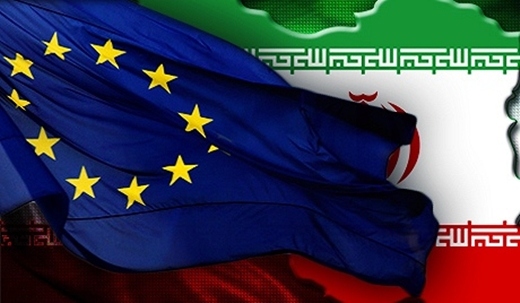The Ukraine crisis and [Russia’s annexation of] Crimea plus the financial crisis in Greece and the economic burden this EU member has placed on the shoulders of Eurozone have all played a part in motivating European members of P5+1 to clinch an agreement with Iran over its nuclear program.
Europe also needs Iran’s cooperation to work out a resolution to the crisis in the Middle East. By and large, Europe’s shift [toward Iran] is a wise decision at a historic crossroads, and the obstacles the US neocons, Israel and Saudi Arabia throw in the way to reverse Europe’s new decision [shift toward Iran] will not work, according to a history researcher and expert in European affairs.
Khabaronline.ir on July 30 published an interview with Majid Tafreshi as to why the Europeans have turned to Iran immediately after the conclusion of the historic Iran nuclear deal. The following is the translation of part of the expert’s answers:
Europe and Iran and the economy
“What transpired in Ukraine and Crimea has made the European Union worried about its overdependence on Russia’s oil and gas. Iran can be a safe, strategic replacement or a parallel alternative to Russia in supplying household and industrial gas to Europe and in letting oil and gas pipelines through its territory.
“Of course, Iran is not seeking to take the place of Russia, nor does Europe want to totally remove Russia from its market; however, neither side doubt the growing strategic importance of Iran’s involvement in this regard.
“For Greece, interaction with non-eurozone countries, especially Iran, is one way to get out of the economic crisis. Greece – especially its current government – has taken no negative policy on and shown no negative feeling about Iran. Interaction with Iran can serve the interests of the two sides and can also help the two weather the economic crisis. Compared with other countries, Iran and Greece have more historical and civilizational common ground thanks to their long history”.
It is wisdom, not love or hate
Tafreshi also takes a look at political and social crises in the Middle East – which seem likely to spill over into the European countries – as another factor that contributes to a change of heart in the West toward Iran and says, “Europe has truly come to the conclusion that it can do nothing serious on several fronts without Iran’s cooperation, whether it loves Iran or there is no love lost between them. The fight against regional and international terrorism; the war on cultivation and smuggling of narcotics to Europe; peace and détente in Syria, Lebanon and elsewhere in the Middle East; peace and stability in Central Asia; and efforts to secure, develop and transfer energy in the Persian Gulf are a few examples of the areas Europe can achieve nothing with Iran not cooperating”.
The Iranian researcher described the Vienna accord as an inevitable option for European countries and a wise shift in their Iran policies and says, “That’s why alarms have been sounded in European countries warning that if the US Congress throws a wrench into the works and tries to take Iran back to three years ago or even before that, the European Union will not follow in the footsteps of the American neocons this time around and will not – in this special case – support the wishes and demands of the US neocons at the expense of its own interests”.
A 400-million-strong market with unique investment opportunities
As for Iran’s market, Tafreshi refers to research by foreign sources and says, “Reports produced by research centers in the West describe Iran as a 400-million-strong, not 80-million, market (taking into account Iran’s potential to turn into a regional economic hub in Central Asia, the Persian Gulf and other surrounding areas).
“In response to reservations about cooperation with Iran, which is grappling with serious economic and financial problems, some experts have said that although Iran is facing a liquidity crisis in the short term, it is one of the few countries in the world with almost no foreign debts despite its economic woes. This lends credibility to Iran to enter into partnership with the EU from a position of strength.
“Iran has the second-largest [proven] natural gas reserves in the world. Its gas reserves have mainly remained intact with enormous potential to be fulfilled. On the other hand, Iran has a stable security and political situation within and along its borders; it has a geopolitical and geostrategic position [in the region], so long-term interaction with Iran is a serious question for Europe which also seeks to import energy – either from Iran or from neighboring oil-rich countries – to the [green] continent”.
Futile attempts by Israel and Saudi Arabia
“In addition to undeniable economic and commercial aspects, the historic Vienna agreement has opened a new chapter on strategic, security and political fronts between Iran and the West. The United States and Europe together with China and Russia inked the agreement admitting that in spite of what has been done over the past three decades to isolate, undermine or bypass Iran, the geopolitical and geostrategic importance of Iran – a big, effective and safe country – in the region and all over the world cannot be denied. They have also acknowledged that efforts to settle many regional disputes will be a nonstarter without Iran’s participation and assistance.
This [Europe’s shift toward Iran] ran counter to efforts by Israel on the one hand and Saudi Arabia and its allies on the other, but the six world powers were reminded of the indisputable position of Iran through a slap across the face [they were given because of events over time] and the lesson they learned from their experiences”.
